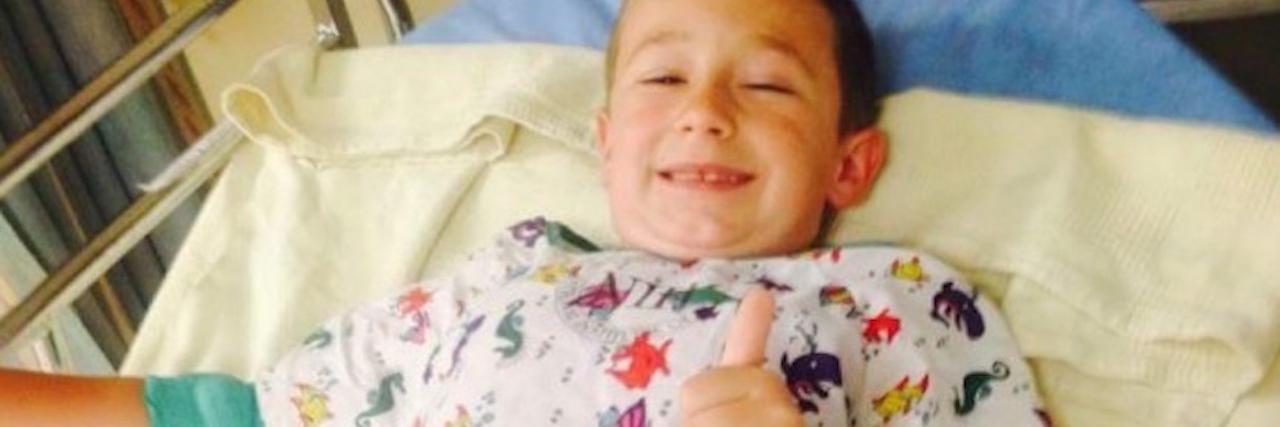
“He doesn’t look sick.”
It drives me crazy when people tell me this.
Recently someone asked me why he participated in Make-A-Wish when “he doesn’t look sick.” This is not the first time either. Please understand if I look at you strangely when you say he doesn’t look sick. There’s more underneath than you know.
He might not look sick, but he has an enlarged liver, spleen and kidneys, along with cholesterol buildup in his brain. He’s slowly losing his abilities, including his hearing and the ability to look up and down. One day it will take over his body and he will lose his ability to walk, talk, eat and eventually, he will die at a young age. We’ve lost so many of his friends to this horrific disease, Niemann-Pick type C, a rare disease also referred to as “Childhood Alzheimer’s.” We are very blessed he’s doing well right now, but every day he fights for his life.
At 9 years old he has to take pills twice a day, wear a patch for high blood pressure, and wear hearing aids. He travels hours by plane every month (soon every other week) to get blood work, hearing and neurological tests, spinal taps and infusions. He has to wear orthopedic inserts, and does physical and occupational therapy. Some people don’t understand; this is a treatment so he will live longer — it is not a cure. But we have hope for one.
To have hope for a cure means we have to raise awareness, which is important with all rare diseases. The more people know, the more children will get properly diagnosed. The sooner that child is diagnosed, the better chance they have. Like many rare diseases, Niemann-Pick type C is difficult to diagnose. Most children do not show neurological signs until school age, though there are some that show signs at birth. Unfortunately, it is a terminal illness and children often die before reaching their teenage years. There are clinical trials and other experimental medications available, but no current approved treatments.
I don’t think people are trying to be mean when they say, “He doesn’t look sick.” They may just be unaware of different diseases, especially rare ones. I believe awareness is the only way people will understand. I know many parents going through the same thing dealing with the same issues. All I can say is don’t let others make you feel badly as a parent of a child with a rare disease. Keep your head up and know you’re doing the best for your child.
The Mighty is asking the following: What’s one thing people might not know about your experience with disability, disease or mental illness, and what would you say to teach them? If you’d like to participate, please send a blog post to community@themighty.com. Please include a photo for the piece, a photo of yourself and 1-2 sentence bio. Check out our Submit a Story page for more about our submission guidelines.

